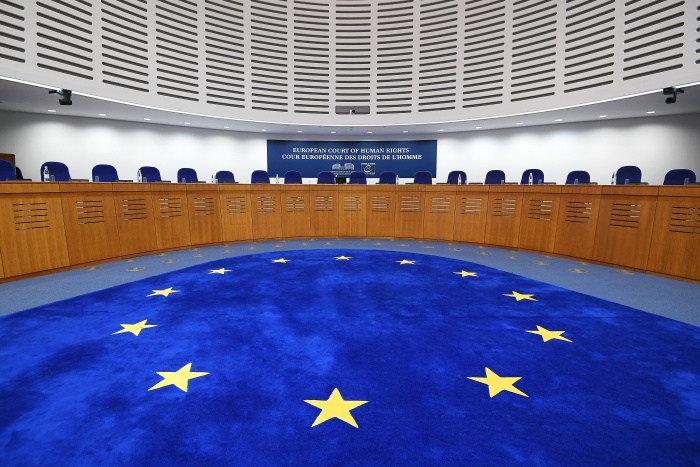The European Court of Human Rights (ECtHR) has faulted Turkey over the arrest and pretrial detention of 45 individuals in the aftermath of a coup attempt in 2016 on suspicion of membership in FETÖ, a derogatory term coined by the Turkish government to refer to the Gülen movement as a terrorist organization.
The ruling Justice and Development Party (AKP) has labeled the movement, inspired by the teachings of US-based Muslim cleric Fethullah Gülen, as a terrorist organization and accuses it of having orchestrated a coup attempt on July 15, 2016.
The group strongly denies involvement in the coup attempt or any terrorist activity.
In the ruling released on Tuesday, the ECtHR said it examined the applications of 45 individuals jointly in a single judgment with regard to their similar subject matter. The applications were lodged on various dates between 2016 and 2019.
According to the court, the applicants were arrested and placed in pretrial detention mainly on suspicion of membership in the Gülen movement, with all of them identified as users of the ByLock smartphone application and some of them as also suspected of financing the movement in view of their use of accounts at the now-closed Islamic lender Bank Asya, which was affiliated with the movement, and possession of pro-movement publications.
ByLock, once widely available online, has been considered a secret tool of communication among supporters of the Gülen movement since the 2016 coup bid, despite the lack of any evidence that ByLock messages were related to the abortive putsch.
Most of the applicants were convicted of membership of a terrorist organization by the first instance courts, the ruling said, adding that, for the most part, the criminal proceedings are still pending before appeals courts or the Constitutional Court.
The applicants complained that there had been no specific evidence giving rise to reasonable suspicion, within the meaning of Article 5 § 1 (c) of the European Convention on Human Rights (ECHR), that they had committed a criminal offense necessitating pretrial detention.
The Strasbourg court stated that it finds that the requirements regarding the “reasonableness” of a suspicion justifying detention have not been satisfied since the Turkish government “haven’t provided any other indications … satisfying it that the applicants were reasonably suspected, at the time of their initial detention, of having committed the alleged offense.”
Holding that there was a violation of Article 5 § 1 of the convention on account of the lack of reasonable suspicion, the court awarded each of the applicants, except one, 5,000 euros in non-pecuniary damages and costs and expenses. The court dismissed the remainder of the applicants’ claims for just satisfaction.
In a landmark decision in September, the Grand Chamber of the ECtHR ruled that Turkey had violated three articles of the ECHR in the case of a former teacher, Yüksel Yalçınkaya: Article 6, which concerns the right to a fair trial; Article 7 on no punishment without law; and Article 11 on freedom of assembly and association.
The Grand Chamber based its ruling on Yalçınkaya’s alleged use of the ByLock app, membership in a labor union and an association affiliated with the faith-based Gülen movement, and having an account at now-closed Bank Asya, which are all considered signs of membership in the Gülen movement and criminal evidence.
Legal experts said the grand chamber’s decision made clear that use of ByLock, depositing money at a Gülen-linked bank or being a member of a Gülen-affiliated association cannot be considered criminal evidence against Gülen movement members.
Following the coup attempt, the Turkish government declared a state of emergency and carried out a massive purge of state institutions under the pretext of an anti-coup fight. More than 130,000 public servants were summarily removed from their jobs for alleged membership in or relationships with “terrorist organizations” by emergency decree laws subject to neither judicial nor parliamentary scrutiny.
In addition to the thousands who were jailed, scores of other Gülen movement followers had to flee Turkey to avoid the government crackdown.



